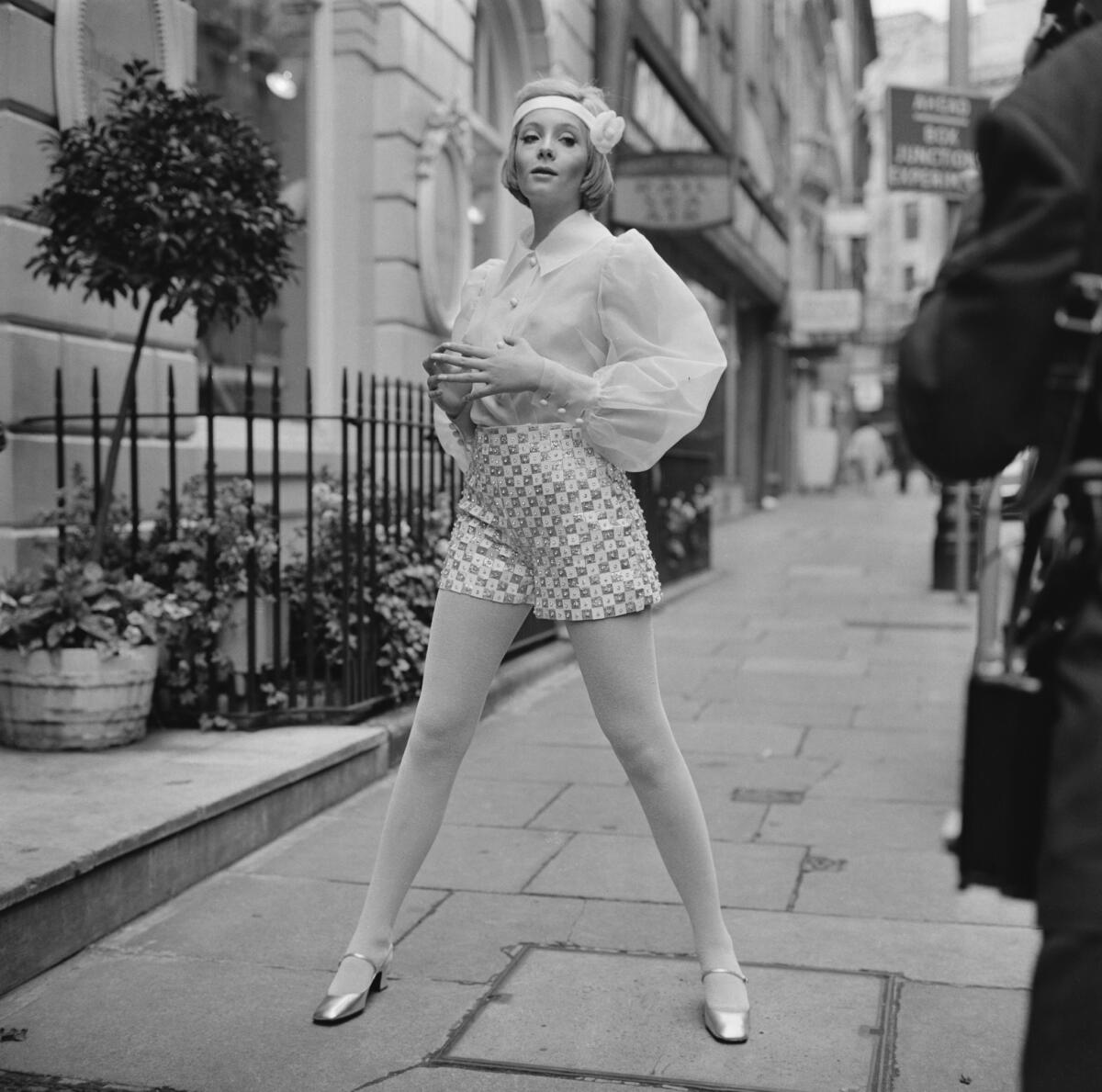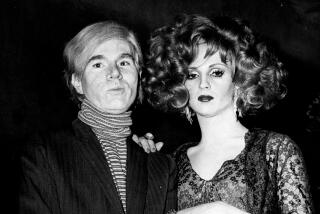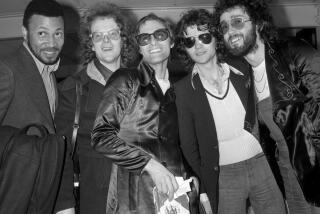Genevieve Waite, who made the ‘60s scene with John Phillips and Mick Jagger, dies
Genevieve Waite, the South African actress, singer and model who became a quintessential face and voice of the 1960s when, for a brief time, she seemed as omnipresent as Mick Jagger, Andy Warhol or the other fixtures of the era, has died in Los Angeles. She was 71.
Married to John Phillips of the Mamas and Papas for 16 years and first cast as South Africa’s answer to supermodel Twiggy, Waite died Sunday. Her death was announced on Twitter by daughter Bijou Phillips, who described her mother as “a beautiful soul and born from another planet.”
Waite was likely best known for her starring role in archetypal swinging ’60s film “Joanna” and a 1974 album, “Romance Is on the Rise,” produced by John Phillips, her husband. She was both his collaborator and muse.
Her unique singing voice, described as “Betty Boop crossed with Billie Holiday” and a comedic persona that had the air of Marilyn Monroe’s dizziness, belied her wit and bookish intellect.

Waite inspired, and in some cases helped co-write, some of her husband’s more rhapsodic and empathetic songs, which tracked their 18-year relationship and beyond, beginning with “Let It Bleed, Genevieve,” a tribute to Waite’s curious mind and her desire to be reborn as a man — specifically Jagger.
That song appeared on Phillips’ 1970 solo album, “John, the Wolfking of L.A.,” itself titled after a description of him in a poem written by Waite that was reprinted on the record’s sleeve.
Born Genevieve Weight in South Africa in 1948, she grew up in Johannesburg and later altered the spelling of her name to something less prosaic. Her father, Lionel, worked as an engineer for African Explosives and Chemical Industries and her mother, Audrey, assisted anti-apartheid campaigner and politician Helen Suzman.
Her proximity to the chaos, violence and unrest of apartheid was, in part, what drove her to England in 1967 at 19. Winning a modeling contest pushed her in that direction as well.
Within a day or two of her arrival in London, she met Vidal Sassoon, who asked her to model for him, and British film director Michael Sarne, who cast her as the lead in his feature film “Joanna” as a promiscuous, flighty art student looking for love in swinging London.
The movie, which premiered at the Cannes Film Festival in 1968, caused a scandal on its release with its depiction of an interracial love affair between Waite and co-star Calvin Lockhart; not least in her home country, where her family was subject to death threats.
The success of “Joanna” earned her a contract with 20th Century Fox and afforded a move to New York, where Waite lived in the Chelsea Hotel and was briefly married to poet Matthew Reich. In New York she became part of the madcap scene around Warhol’s Factory, and served as a muse to photographer Richard Avedon, who shot her for Vogue.
One night, in the summer of 1969, Sarne introduced her to Phillips — recently separated from his wife Michelle, who was also his partner in the Mamas and the Papas. They took mescaline together on a beach in Malibu and were inseparable from then on.
The two married in 1972 after the birth of their son Tamerlane, in an eccentric ceremony administered by a one-legged Buddhist monk at the Golden Palace restaurant in L.A.’s Chinatown. The guest list included Jagger and his wife Bianca, Cass Elliot of the Mamas and the Papas, Joni Mitchell, Jack Nicholson and Donald Sutherland. Their circle of friends included then-California Secretary of State Jerry Brown, Britain’s Princess Margaret, Robert F. Kennedy Jr., and John Paul Getty Jr.
Phillips’ affection for his wife found form in “Romance Is on the Rise,” the 1974 album he produced for her that was a hip, knowing fantasia that updated 1940s big band and swing music for the disco era, with backing by the Plastic Ono Band and featuring album art shot by Avedon of Waite as a Vargas pin-up.
The couple also conceived and co-wrote “Space,” a wildly ambitious, pre-”Star Wars” space opera set to music, initially intended to be Michael Butler’s followup to “Hair.”
After appearing opposite Elliott Gould and Paula Prentiss in the 1972 sex comedy “Move,” Waite’s acting career stalled. A plum role as David Bowie’s ingenue girlfriend in “The Man Who Fell to Earth” — later played by Candy Clark — was scrubbed when her husband got into a fistfight with director Nic Roeg at a Manhattan cabaret. She had to settle for a song on the film’s soundtrack. She starred instead in “Space,” now retitled “Man on the Moon” Moon and produced on Broadway by Warhol, but which had the misfortune of being directed by Warhol acolyte Paul Morrissey in the manner of his underground films and was savaged by critics, and closed five days after it opened.
The Phillipses never fully got over the failure of the musical.
By 1976, they were living in an apartment in London with Keith Richards and Anita Pallenberg, and became addicted to cocaine and heroin while Phillips was working on his second solo album. Four years later, the Phillipses went to rehab and rebuilt their lives following the birth of their second child, Bijou, who went on to a successful film and television career, and John’s high-profile August 1980 bust for drug trafficking.
Their marriage, which ended in 1988, was a casualty of their addiction. But the story of their epic, often tempestuous, romance is immortalized in a compelling catalog of songs. Waite is survived by by her children, Tamerlane and Bijou, and three stepchildren, Mackenzie Phillips, Chynna Phillips and Jeffrey Phillips.
Campion is a Times correspondent.
More to Read
Start your day right
Sign up for Essential California for the L.A. Times biggest news, features and recommendations in your inbox six days a week.
You may occasionally receive promotional content from the Los Angeles Times.






